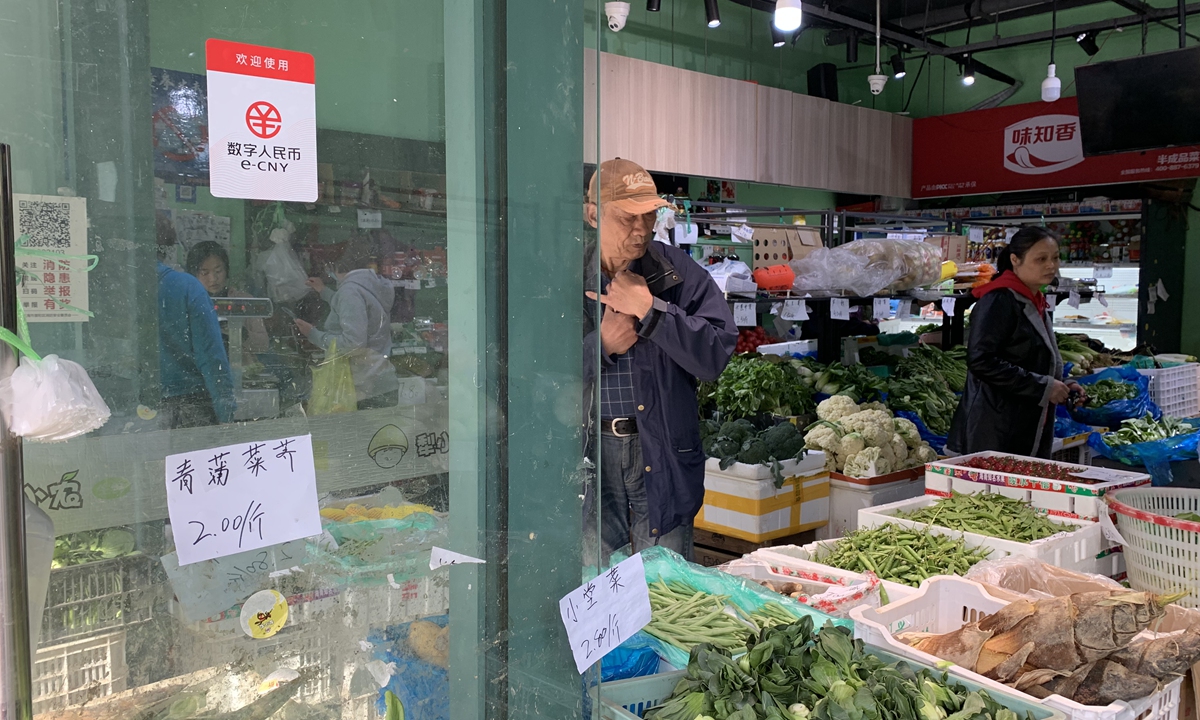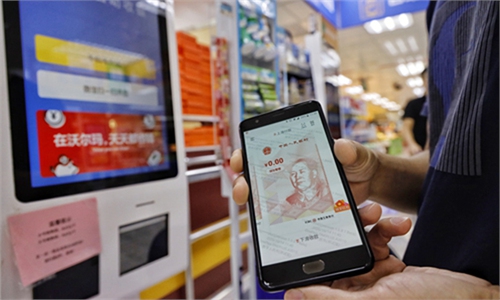
A vegetable store supports digital yuan payment in Shanghai. Photo: Qi Xijia/GT
The alleged impact of the digital yuan on the international financial system won't be significant, as the emerging Chinese digital currency only covers a small amount of payments currently, the former head of China's central bank said on Wednesday.
"The digital yuan is currently being tested for low-value payments such as cross-border retail and online shopping... and its globalization process depends on the yuan's globalization," Zhou Xiaochuan, former governor of the People's Bank of China (PBC), said on Wednesday during a panel discussion under the Boao Forum for Asia (BFA).
"High-value cross-border transfers for international investments and trade are still ... using the payment systems under clearing mechanisms that involve the current account and exchange rates," Zhou added.
"Of course, some countries, especially those countries that have a large number of migrant workers, want to use digital currencies for cross-border trade and remittances," Zhou said.
However, Zhou warned that these transfers are more complicated as money laundering, tax evasion and drug trafficking might be involved.
"So current focus of the development of the digital yuan should be on transactions involving small amounts, which could prevent the so-called 'impact of the digital yuan' on the global financial system," Zhou added.
China has been pushing the development and application of a digital currency, and has launched several pilot projects in selected Chinese cities including Shanghai and Shenzhen.
Digital currencies are also a hot topic at this year's BFA that is taking place in Boao in South China's Hainan Province.
"The current focus of the development of the digital yuan is to promote its domestic use," said Li Bo, deputy governor of the PBC, at the Boao Forum on Sunday.
The PBC participated in the launch of the Multiple Central Bank Digital Currency Bridge project, which aims to explore different ways to achieve cross-border transactions of digital currencies, among national central banks, Li added.
Global Times


